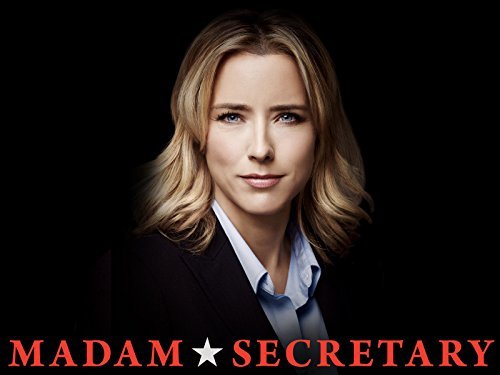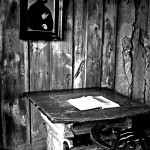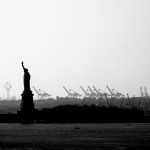Note: This post contains spoilers for Episode 6.
Madam Secretary, CBS’s answer to The West Wing, is a refreshing bit of noble idealism for a jaded world. As episode 6, “The Call,” opens, newly-appointed Secretary of State Elizabeth McCord (Tea Leoni) is agonizing over her speech to the World Affairs Committee. Every word has been carefully crafted in order to avoid offense to the world leaders to whom she will speak.
Consequently, her speech says a whole lot of nothing.
In the midst of this preparation, Bess comes home to find her husband, Henry (Tim Daly), meeting with Father Laurent Vasseur (Louis Gossett, Jr.). Henry is now a religion professor (and prone to quoting Aquinas and the Bible) and Father Vasseur was one of his favorite teachers. Father Vasseur appeals to Bess for help; a genocide is about to begin in his fictional country, The Republic of West Africa. He tells Bess that she has the power to be the answer to thousands of prayers.
Bess feels ambushed by this sudden visit being thrust upon her in her own home, but her conscience won’t let her ignore the Father’s pleas. She gathers information (50,000 innocent lives are in danger) and brings the concern to the President. “I am a realist,” she tells him. “But there are events that transcend national interests, and I believe this is one of them.” He disagrees with her. Bess is disappointed but willing to accept his decision.
The real world-anchor of the story is always Bess’s family; her husband and daughters frequently encourage and challenge her. This time, her daughter, Stevie, reminds her of a pep talk Bess gave her when Stevie was afraid to climb a mountain: “Honey, you are the descendant of some of the greatest heroes and villains the commonwealth of Virginia has ever seen. If you have got one thing running through your veins, it’s guts. And don’t call me back until you’ve reached the top of that mountain, little girl.”
Bess is challenged that perhaps there is more she can do for the people of West Africa. In the midst of some carefully-worded remarks to the World Affairs Committee, she speaks about doing what is right and suddenly cannot bear her own hyprocisy. Fully realizing that she might well be fired for stepping outside the President’s guidance, she verbally confronts the pending genocide in West Africa. She makes a lot of people angry–including the White House Chief of Staff–but she begins to build a coalition too. And she actually reaches the ear of the President, motivating him to get involved. (As I rewrote this recap, I found myself paralleling Bess’s action to that of Queen Esther in the Bible. Of course, Esther was far more brave than Bess is; Esther’s life was actually on the line.)
Meanwhile, news breaks that Father Laurent has ties to drug runners in Africa. The White House has been made a fool of. Henry is furious. Bess is upset too, but finds within herself the calm willingness to let go of her public embarrassment. Father Laurent’s misdeeds don’t negate the continuing threat to the people of West Africa. Someone still needs to defend the innocent.
Feeling deeply betrayed, Henry confronts Father Laurent. This scene was a wonderful, nuanced discussion of how one lives out his faith in the midst of a broken world. Henry praises the old Father Laurent that he used to know who lectured on “Living Faith,” who cared for AIDS victims when many were afraid to do so. Now Henry is deeply disillusioned by Father Laurent’s deception and willingness to ally himself with drug cartels. Father Laurent argues that West Africa, a failed state, is “his patch of darkness.” He gets refugees out of the hot zone safely by having them carry drugs for the dealers. He refuses to apologize for using whatever tools are needed to help innocent people in the midst of a terrible situation: “In this failed state, that is the Lord’s work.” Henry isn’t buying it; he feels that the motivation to do good in unimaginable circumstances is not sufficient cause to be party to the evils of the drug trade.
Elizabeth finds a way to avoid genocide in West Africa, and Father Laurent is key to that victory.
Later, it is Elizabeth who brokers peace between Father Laurent and Henry (a diplomat in world affairs is also one at home?). Father Laurent has been summoned to Rome to face church discipline. He comes to say goodbye, willing to face whatever consequences come his way. He suggests that “a man of God who is not in trouble is not doing his job.” (I have to say that I agree!)
When we try to do good in a broken world, there will be times when we have to do as Martin Luther said: “sin boldly, but believe on the Lord Jesus Christ all the more boldly.” Father Laurent had no perfect choices; it was perhaps easy for Henry to criticize him from the midst of his easy American life. Still, I appreciate Henry’s desire for integrity in all things. The question of what ethical choice is “a bridge too far” can be a very difficult one.
If you were Father Laurent, what would you do? Is it possible to stay perfectly morally pure and still protect the innocent in this broken world? Whose approach do you side with most: Father Laurent’s or Henry’s?
Image source: IMDB.com













